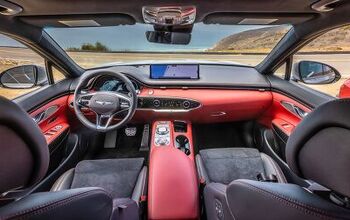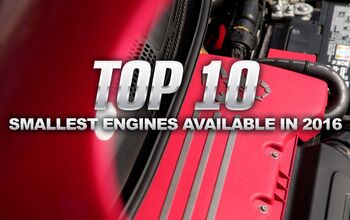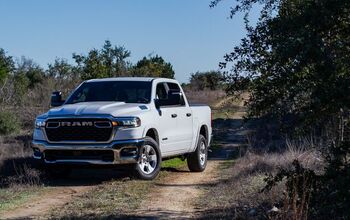Feature Focus: 2016 Volkswagen Jetta 1.4 TSI Engine

Welcome to a new segment called Feature Focus. In this series, we’ll take a look at one specific part of a car that stands out and we’ll walk you through all the details in a quick two-minute video.
The 2016 Volkswagen Jetta receives a significant update this year, and it can be found under the hood.
Gone is the old, antique 2.0-liter engine, replaced by an all-new 1.4-liter turbocharged four-cylinder. The two-point-slow jokes can finally end, as the Jetta has a proper base engine. In fact, the Jetta has gone from having quite possibly the worst entry-level engine to one of the best.
Introduced as the volume engine in S and SE models, the small turbo is made from aluminum and features an integrated exhaust manifold. It has a smaller bore and longer stroke than the 2.0-liter engine, the latter of which improves torque and makes it ideal for adding boost. Tuned to a 10.0:1 compression ratio, the 1.4 TSI engine incorporates direct fuel injection along with turbocharging. Keeping things from getting too hot, an intercooler is integrated directly into the induction pipe.
Get the Flash Player to see this player.
Impressive Specifications
All of this leads to an engine that produces 150 hp at 5,000 rpm and 184 pound-feet at 1,400 rpm. Although some competitor’s entry-level engines can beat its horsepower, nothing touches the Jetta’s torque number. That’s also a healthy increase of 35 hp and 59 lb-ft of torque over the old 2.0-liter unit. It’s important to note that those numbers are achieved using premium fuel. That stated, the 1.4L turbo can run on regular gasoline, just expect a small decrease in performance.
SEE ALSO: Volkswagen Details New 1.4L Turbo Engine
But the new engine, which can be hooked up to a five-speed manual transmission or a six-speed automatic, is more than just about its numbers. Hammer down the accelerator from a dead stop, and the Jetta roars away with minimal turbo-lag thanks to a small, single-scroll turbocharger. Power always seems plentiful and at the ready, even at freeway speeds. The absolute lower rpm band does lack some power, but once the revs surpass 2,000 rpm or so, power is at the ready.
It really begs the question if the 1.8-liter turbo needs to exist in the Jetta lineup, as the 1.4-liter has nearly the same noticeable performance. If absolute performance is really wanted in a 2016 Jetta, there’s always the GLI with the 2.0-liter turbo engine.
Smoother, More Efficient
Besides offering more power, the new engine is also so much smoother than the Jetta’s old paper weight and it’s more efficient. Officially rated at 28 mpg city and 39 mpg highway when equipped with the six-speed automatic, that marks a five mpg increase over the old 2.0-liter unit.
ALSO SEE: Feature Focus – 2017 Hyundai Elantra’s Safety Tech
It’s not all perfect, of course. As mentioned, the engine does require premium fuel to get maximum power and there is a timing belt that will inevitably need replacing down the road. But still, for an increase of just $355 compared to the 2015 Jetta S, the new 2016 Jetta S is suddenly a far more compelling option. It always offered a lot of car for well under $20,000, but now the 2016 Jetta S offers a lot of engine as well.
Discuss this story on our Volkswagen Jetta Forum

A 20+ year industry veteran, Mike rejoins the AutoGuide team as the Managing Editor. He started his career at a young age working at dealerships, car rentals, and used car advertisers. He then found his true passion, automotive writing. After contributing to multiple websites for several years, he spent the next six years working at the head office of an automotive OEM, before returning back to the field he loves. He is a member of the Automobile Journalists Association of Canada (AJAC), and Midwest Automotive Media Association (MAMA). He's the recipient of a feature writing of the year award and multiple video of the year awards.
More by Mike Schlee
















































Comments
Join the conversation